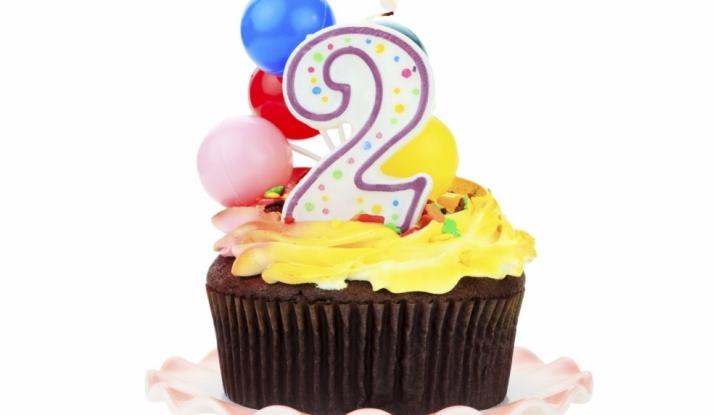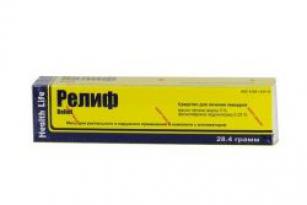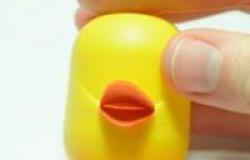Grandmother and grandfather’s house is remembered by their grandchildren with the aromas of pies, strawberry jam ... But time goes on, grandchildren grow, and grandfather and grandmother grow old. And now in their house there are completely different smells, unpleasant.
Those in their sixties need more attention to hygiene. Unfortunately, many old people do not really like to wash. And there is an explanation for this. Over the years, the skin becomes thinner, the release of fatty grease decreases. Because of this, the skin becomes dry and very sensitive, so washing often brings discomfort. In addition, soap and water removes a protective lipid film from the skin, so after a bath it becomes tightened and painful.
Many older people (especially often in men) develop ichthyosis - increased peeling of the skin, as well as senile itching, usually in the genital area and anus.
But still, do not forget about hygiene. Just water procedures need to be carried out differently than in youth:
It is better to abandon the bath, replacing it with a shower. It is enough to take a shower every other day, because over the years the sweat glands are no longer so active. For washing, you should not use soap, but gel creams with a neutral pH - they retain the lipid layer. Moreover, with these means it is enough to wash only the bends of the arms and legs, folds of the skin and genitals. The rest of the body is simply washed with water.
After the water procedure, it is imperative to thoroughly wipe the skin, getting it wet, especially in the places of bends of the arms and legs. If the skin is too dry, you should lubricate it with a moisturizing cream or body lotion (any cosmetics suitable for dry sensitive skin).
Bathtubs for the elderly should be equipped with handrails, at the bottom - a rubber mat that prevents slipping. A compromise option is a sitz bath or shower.
Water should be neither hot nor too cool, so as not to injure the skin of an elderly person.
Wash with warm water should be done daily, as well as after each stool. To avoid genital itching, you should wear only cotton or linen underwear and change it daily, avoid overheating the body during sleep, and exclude spicy foods and smoked foods from food.
If it is difficult to take a shower, you can wipe the body with sanitary napkins soaked in natural emollients and anti-inflammatory extracts (wipes for babies are suitable). It also does not hurt to use intimate hygiene products (deodorants, eau de toilette), but they need to be applied only to clean and dried skin.
To cope with the problem of increased dryness of the skin, it is important for elderly people not only to take care of it correctly, but also to take B vitamins (found in meat, cereals) and fat-soluble vitamins A, D, E. However, to select their dose, you need to see a doctor, because for the body of an older person, both a deficiency and an overabundance of these substances are dangerous.
Caring for your two
The bad smell from the legs more often occurs in young people, but if an elderly person neglects hygiene, then his socks, of course, will not be fragrant with roses. Proper care of this part of the body for the elderly is of particular importance. Neglecting foot hygiene can lead to unpleasant sensations and pain, and in more serious cases - to the inability to move without assistance.
The main risk is fungal infections. To prevent them, you need to wash and dry your feet thoroughly daily. It is recommended to use talcum powder or powder to treat the interdigital spaces, as well as a foot cream to prevent the skin from drying out and difficult to heal cracks.
People with excessive sweating should abandon synthetics and wear shoes, socks, tights made from natural materials. To reduce sweating twice a day for 15 minutes, you should lower your feet in a warm solution of strong brewed tea or a decoction of oak bark. To eliminate the unpleasant odor, you can wash your feet 3-4 times a week in warm water with a weak solution of vinegar (1 teaspoon of 3% vinegar in 2 liters of water).
It is difficult for elderly people to cut toenails on their own, family members should help. This is a very important thing, because improper trimming of nails can lead to their ingrowth into the skin.
Home, favorite home
Not only the body can smell unpleasant, but also everything that surrounds the elderly person: old rubbish, long-unventilated things, house dust, which, by the way, is largely formed from dead skin particles. Keratinized scales are torn away and stuck in the folds of clothes of older people, deposited on bedspreads and upholstered furniture, and hammered into the pile of carpets. Since it’s hard for old people to clean themselves (all the more so to carry out wet cleaning), and also often change, wash and iron their clothes and bedding, a stagnant smell appears in the house. Cleaning responsibilities should be assumed by younger relatives.
For aromatization of the room it is better to use not air fresheners, but aromatic essences of essential oils, oriental incense. In the cabinets you can place sachets with herbs, pieces of aromatic soap, cut citrus skin.
To wash an aging and sick loved one is often a problem that those who care for elderly relatives face. Dementia further complicates the situation. Simple bathing tips and tricks will help caregivers better navigate this difficult task and keep their grandparents as clean and healthy as possible.
How often do older people need to wash
If an elderly person does not wash every day, his health is unlikely to be affected. This may seem wrong to the younger generation, who are used to taking a shower often, but daily changing clothes and weekly bathing are usually enough. Older people do not get dirty so quickly, as they are not very active.
However, if they have skin problems or incontinence, then more frequent washing is crucial to prevent dangerous infections.
You need to find the frequency of bathing, which will be convenient for the caregiver, and will help the elderly to maintain health.
Memory loss, confusion and fear
Setting a bathing schedule is the easiest task in trying to overcome older people's unwillingness to take a shower or bath. Symptoms of dementia can seriously upset a previously established self-care habit and prevent relatives from helping them.
For example, an illness leads an older person to believe that he has just taken a shower, although he has not actually washed for several weeks. Or he may get confused in the multi-stage bathing process. Instead of asking for help, many grandparents simply start to avoid washing.
Fear of swimming is even more common among older people with dementia. They are afraid of a shower or bath, because they feel instability on smooth surfaces and are afraid to fall and get injured. In the later stages of the disease, a person with dementia may not understand the task at all. Confusion and discomfort inevitably lead to fear and resistance.

- An older person should feel safe and comfortable in the bathroom throughout the entire washing process. If the room is cool, try to warm it first. Even a small heater will greatly affect the room temperature.
- If using a shower, be sure to install handrails for added stability. A special bathing chair will allow the elderly not to exert much effort when washing. A hand-held shower head prevents permanent water on the head, minimizing discomfort and fear.
- If dementia in older people is so developed that they are adamant in their decision not to wash, try a different tactic. Bathing does not have to be a bath or shower. Get special sponges, dry shampoos and personal care products that do not require rinsing with water.
- A full bath or shower is not needed every day, but there are certain areas of the body that require more frequent attention. Wiping with a damp cloth every day and after the toilet will help older people stay clean between a full wash.
- Communicate while helping your grandparents swim. It is important to announce each action before you do it. This will help the elderly to be calm and involved in the process. Surprises can lead to excitement, anger, and confusion. Describe each step in a quiet, soothing voice.
- Many older people do not like the idea that one of their relatives helps them wash. Often it is easier for them to receive help from a professional caregiver, especially if she is dressed as a nurse in a hospital. Another advantage of the help of specialists is that employees of organizations for caring for the elderly are able to carry out work more thoroughly and faster, observing safety rules.
If you cannot force an elderly person to adhere to the rules of personal hygiene, it is important to evaluate how justified this vanity is. Yes, cleanliness is important for good health. If a shower or bath every day is more like torture for a patient with dementia, try to find a middle ground to maintain a minimum level of hygiene.
In the process of aging, the human body inevitably changes. These changes affect the speed of metabolic processes, cell regeneration, reaction, etc. And, of course, age-related changes are noticeable externally. We can easily see that our skin, teeth and hair change with age. To maintain good health and well-being in old age, it is important to ensure proper daily skin care.
Aging skin is drier and more sensitive. She is subject to more problems than in her youth. The skin of older people becomes thinner, loses moisture and elasticity. The healing rate is markedly reduced.
This means that the risk of developing inflammatory processes, infections, fungal diseases, etc. increases. Without proper care, these conditions significantly worsen the well-being of older people.
Although each of us has different skin, there are some common age-related problems that you need to know about.
Common skin problems in old age
Dermatitis
Dermatitis is a skin disease that occurs in people of all ages. But it can become especially dangerous for the elderly. A feature of dermatitis is excessive dryness and itching of the skin. In milder cases, this symptomatology is limited.
To remove unpleasant sensations, cream with Tamanu oil is well suited. It has a healing, calming and anti-inflammatory effect. And can be used to prevent skin scuffs and diaper rash.
If skin irritation persists, peeling and the formation of painful sores occurs, measures should be taken as soon as possible. See a dermatologist because an infectious complication of dermatitis can jeopardize the general well-being and health of an elderly person.
Senile purple.
An elderly person for no apparent reason may appear purple spots (bruises) on the skin of the forearms, in the region of the elbow and knee joints. After a few days, the spots darken, become brownish. The skin in these places becomes thin, atrophied. The cause of the occurrence is age-related fragility of blood vessels. In addition, some medications prescribed by your doctor can trigger this skin condition. Nevertheless, senile purpura does not require special treatment, and does not threaten health.
Hyperkeratosis
Hyperkeratosis - the growth of the surface layer of the skin (epidermis). The reasons for its occurrence can be:
- diabetes;
- violation of the thyroid gland;
- avitaminosis;
- circulatory disorders (for example, in case of varicose veins);
- uncomfortable shoes and clothes.
In old age, hyperkeratosis can be complicated by the appearance of painful cracks in the skin and infection.
Proper skin care will help prevent these troubles.
In old age, it is recommended to give preference to a medical pedicure, which is carried out in the podology office of a clinic or skin dispensary.
For the routine skin care of the feet, knees and elbows, it is excellent with a urea content that helps soften and exfoliate dead skin particles.
Remember that in case of diabetes, care for the skin of the legs should be carried out with extreme caution. Since the slightest wound, abrasion or trauma to the skin threatens diabetics with the development of a serious complication - diabetic foot syndrome.
- Reduce the time of water procedures. Water provokes dry skin.
- Use fat-based cleansers instead of soap. for instance Hydrophilic Tamu-Tamu oil for bath and shower. It allows the skin to maintain a natural level of hydration.
- Apply a mild moisturizer to your skin after every shower visit. Give preference to creams with natural ingredients that have a moisturizing, soothing and healing effect. For example, cream with Tamanu oil.
- Change underwear and bedding regularly. Especially if a person is bedridden. Spend daily!
- Always use sunscreen when going outside. Even if the window is cloudy.
- Stop smoking. Tobacco negatively affects the state of blood vessels and skin.
- Observe drinking regimen. Keep on hand a bottle of drinking water without gas and take a few sips every 30 minutes.
- It is advisable to use a household humidifier.
- Visit your doctor, including a dermatologist, regularly and undergo a preventive medical examination.
Our expert is a professor at the Department of Therapy, Geriatrics and Apitherapy, Faculty of Postgraduate Education, Moscow State Medical University, Doctor of Medical Sciences Yuri Konev.
Soul in soul
Those in their sixties need more attention to hygiene. Unfortunately, many old people do not really like to wash. And there is an explanation for this. Over the years, the skin becomes thinner, the release of fatty grease decreases. Because of this, the skin becomes dry and very sensitive, so washing often brings discomfort. In addition, soap and water removes a protective lipid film from the skin, so after a bath it becomes tightened and painful. Many older people (especially often in men) develop ichthyosis - increased peeling of the skin, as well as senile itching, usually in the genital area and anus.
But still, do not forget about hygiene. Just water procedures need to be done differently than in youth:
- It is better to abandon the bath, replacing it with a shower. It is enough to take a shower every other day, because over the years the sweat glands are no longer so active. For washing, you should not use soap, but gel creams with a neutral pH - they retain the lipid layer. Moreover, with these means it is enough to wash only the bends of the arms and legs, folds of the skin and genitals. The rest of the body is simply washed with water.
- After the water procedure, it is imperative to thoroughly wipe the skin, getting it wet, especially in the places of bends of the arms and legs. If the skin is too dry, you should lubricate it with a moisturizer or body lotion (any suitable).
- Bathtubs for the elderly should be equipped with handrails, at the bottom - a rubber mat that prevents slipping. A compromise option is a sitz bath or shower.
- Water should be neither hot nor too cool, so as not to injure the skin of an elderly person.
- Wash with warm water should be done daily, as well as after each stool. To avoid genital itching, you should wear only cotton or linen underwear and change it daily, avoid overheating the body during sleep, and exclude spicy foods and smoked foods from food.
- If it is difficult to take a shower, you can wipe the body with sanitary napkins soaked in natural emollients and anti-inflammatory extracts (wipes for babies are suitable). It also does not hurt to use intimate hygiene products (deodorants, eau de toilette), but they need to be applied only to clean and dried skin.
- To cope with the problem of increased dryness of the skin, it is important for older people not only to take care of it correctly, but also to take B vitamins (found in meat, cereals) and fat-soluble vitamins A, D, E. However, to select their dose, you need to see a doctor, because for the body of an older person, both a deficiency and an overabundance of these substances are dangerous.
Caring for your two
The bad smell from the legs more often occurs in young people, but if an elderly person neglects hygiene, then his socks, of course, will not be fragrant with roses. Proper care of this part of the body for the elderly is of particular importance. Neglecting foot hygiene can lead to unpleasant sensations and pain, and in more serious cases - to the inability to move without assistance.
The main risk is fungal infections. To prevent them, you need to wash and dry your feet thoroughly daily. It is recommended to use talcum powder or powder to treat the interdigital spaces, as well as a foot cream to prevent the skin from drying out and difficult to heal cracks.
People with excessive sweating should abandon synthetics and wear shoes, socks, tights made from natural materials. To reduce sweating twice a day for 15 minutes, you should lower your feet in a warm solution of strong brewed tea or a decoction of oak bark. To eliminate the unpleasant odor, you can wash your feet 3-4 times a week in warm water with a weak solution of vinegar (1 teaspoon of 3% vinegar in 2 liters of water).
It is difficult for elderly people to cut toenails on their own, family members should help. This is a very important thing, because improper trimming of nails can lead to their ingrowth into the skin.
Home, favorite home
Not only the body can smell unpleasant, but also everything that surrounds the elderly person: old rubbish, long-unventilated things, house dust, which, by the way, is largely formed from dead skin particles. Keratinized scales are torn away and stuck in the folds of clothes of older people, deposited on bedspreads and upholstered furniture, and hammered into the pile of carpets. Since it’s hard for old people to clean themselves (all the more so to carry out wet cleaning), and also often change, wash and iron their clothes and bedding, a stagnant smell appears in the house. Cleaning responsibilities should be assumed by younger relatives.
For aromatization of the room it is better to use not air fresheners, but aromatic essences of essential oils, oriental incense. In the cabinets you can place sachets with herbs, pieces of aromatic soap, cut citrus skin.
Elderly people are quite conservative in matters of buying kitchen appliances and go to the store only when the old model is broken, and it is no longer possible to fix it. They often do not allow thoughts to please themselves and buy some kind of new-fashioned device. Therefore, we, their young relatives, come to the rescue. What you need to consider when choosing and what technique will facilitate, and not complicate the life of the objects of our care - in this review!
We have already touched on this topic in a previous article, but recall the main points. For older people to use kitchen appliances, it must meet several requirements:
1) Need
We often purchase gadgets and devices because everyone is hearing them, or because a favorite coffee machine has a new interesting feature. In the case of older people, the technique should not be advanced, it should facilitate life and help with the performance of routine tasks.
2) Maximum device independence
This is not only about the user's peace of mind (less to remember and less to do), but also about security - older people often forget about the devices turned on.
3) Easy to control
It is advisable to set all the necessary settings in advance and show only one or two buttons that you will need to press in the future. If necessary, write down the procedure on the sticker and attach it in a conspicuous place.
4) Large inscriptions and
indicators
As well as loud sounds that should accompany the selection or completion of programs. When using the device, it should be immediately clear that it has started or finished work.

5) No maintenance required
Older people sometimes try too hard to keep the equipment in its original form, but it doesn’t always benefit from it: remember the Teflon cleaned with metal or the plastic levers that were touched and broken during washing ... Immediately specify the care rules and write them down in a prominent place.
Now, let's go over the most necessary devices for older people and discuss what to look for when buying.
Kettle
Tea and coffee ceremonies usually accompany retired people from morning to late evening. Therefore, a high-quality electric kettle is the main must-have in their kitchen. The main selection criteria are strength and safety.Tefal Express II KI170D30 1.7 liter volume is quite consistent with them. It is made of stainless steel, resistant to mechanical damage, falls and corrosion, and also automatically shuts off in three cases: when boiling, removing or lacking water. A tall flask with a pronounced wide nose and a large convenient handle resembles the models of the last century, and the matte sheen of the metal surface of the case and the deep black color of the details reinforce the vintage effect, which will surely appeal to users of advanced age. High power consumption (2,400 W) ensures the fastest possible boiling of water.

Meat grinder
To convince older people to buy ready-made minced meat and semi-finished products is almost impossible, and probably not necessary. Therefore, it makes sense to replace the old manual meat grinder, requiring impressive physical skill, with a modern electric version. We pay attention to its simplicity and functionality, as is the case withMoulinex ME458139. This modern compact and productive device with only one speed leaves no room for errors during use. A powerful motor and a self-sharpening knife allow you to effectively grind meat even for a long time, without forcing owners to think about additional care for the device. Well, where can the creative soul go for a walk, when choosing nozzles - the kit includes three stainless steel grills with holes of different diameters for the forcemeat of perfect size, nozzles for sausage, kebbe, diced and even grater with a shredder. Let us return to the issue of safety: the meat grinder itself turns off in case of overheating.

Dishwasher
The older we get, the more time and effort such everyday actions as washing dishes require from us. Beat the dishestsya, not laundered, lost ... Perhaps the only salvation in this case may be a reliable dishwasher. It should not have special bells and whistles: by pressing a whole pair of buttons, the process should be started, as, for example, in a compact dishwasherMidea MCFD55200W. The model perfectly launders up to 6 sets of dishes in one load. Various automatic programs allow owners not to think about setting the time, water temperature and other parameters. There are modes for washing lightly, medium and heavily soiled dishes, as well as for delicate cleaning of glassware. In principle, it is enough to set up the machine once (for an accelerated washing program), and the owner will only need to load the dishes and the cleaning agent, turn it on and wait for the result. What is important for older users - the device's energy efficiency complies with the A + standard, which means that the model will consume electricity as economically as possible.
Double boiler
The relationship of a person with stoves in old age becomes even dangerous - starting from burnt dishes, ending with a gas off. But the need for a healthy diet is only growing. A modern and easy-to-use steam cooker will help you forget about the old methods of cooking food for a couple (like a colander in a pan)Tefal VC3008. On three tiers, placed one above the other, you can cook (and even thaw) various products - vegetables, fish, rice, for which a special container is supplied, while the smells will not mix. When guests arrive, the steam boiler will cope with baking muffins or muffins. All that is required of the user is to add water, download products, select one of the automatic programs and wait for a sound signal.

Bread machine
Probably one of the most enjoyable purchases for an elderly person may be a bread maker. The smell of your own made bread will create a feeling of comfort and will certainly cheer you up. The model’s presence of an electronic control panel with a large display and sound signals reminiscent of the need to add ingredients is a minimum necessary for older users.Moulinex OW312E32 they will be pleased with this and the removable baking dish with non-stick coating, which is easily washed without the use of abrasive tools and expensive detergents. The model prepares bread and muffins according to 12 recipes (including gluten free), kneads the dough, makes jam and yoghurts. It remains only to help all this master the owner of a miracle device.
For an elderly person to be happy to use modern technology, it is not at all necessary to reveal to him the full range of its capabilities. Try to show the basic functions and work a couple of times with a novelty in the kitchen. Having gone through the process together from start to finish, you will certainly succeed!





